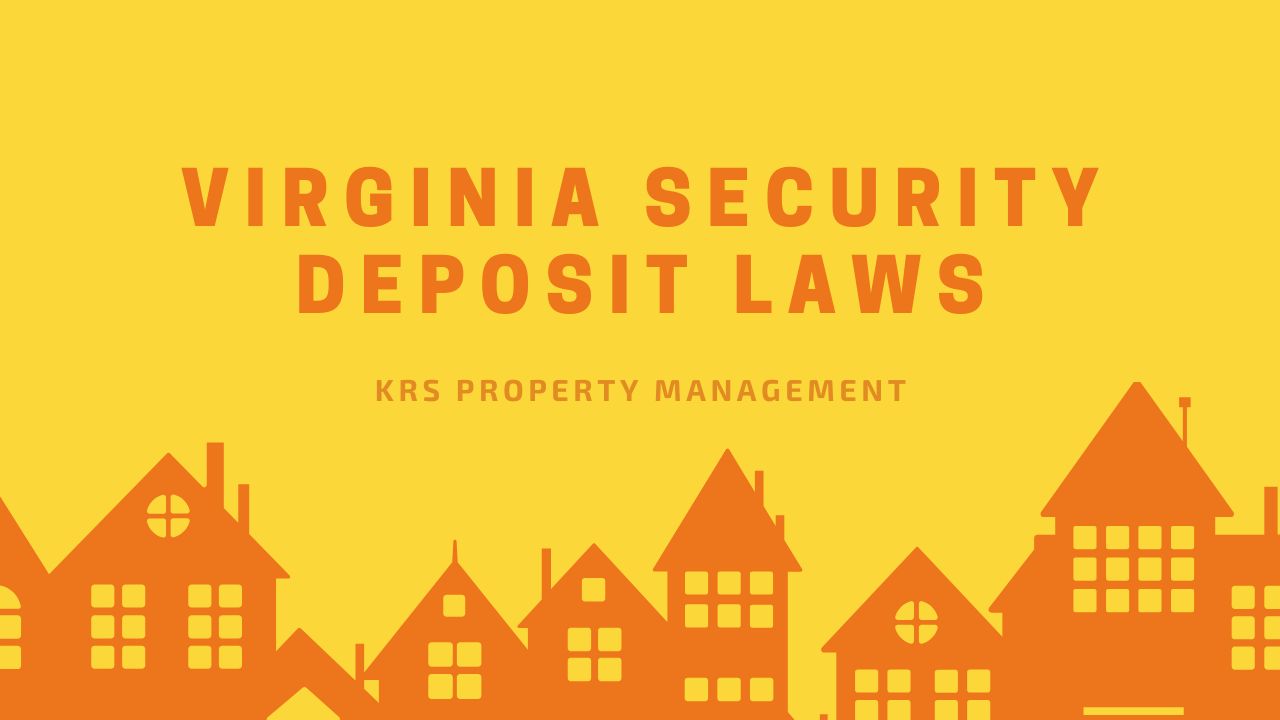
notify Key Takeaways
- Security Deposit Laws and Limits: Virginia security deposit law allows landlords to charge tenants up to two months' rent for a security deposit. Tenants can also purchase damage insurance instead, as long as the total doesn't exceed twice the monthly rent.
- Move-In Inspections Required: The law in Virginia mandates that landlords and property owners provide tenants with a move-in inspection report, detailing the dwelling unit's condition. Failure to do so can result in the forfeiture of any deposit claims.
- Deductions from Security Deposits: Landlords deduct money from a tenant's deposit to cover unpaid rent, fees, damage beyond normal wear and tear during the tenancy, or costs from an early lease termination.
Virginia security deposit law, included in the Virginia Residential Landlord Tenant Act, requires that landlords and property owners who charge security deposits abide by certain rules. Virginia security deposit laws dictate things like:
- The maximum security deposit amount that landlords charge a tenant as part of their rental agreement.
- What deductions landlords can make from the tenant's deposit as a result of the tenant's actions during the tenancy, and what the tenant may do to dispute them.
- When to return the tenant's full deposit, or the remaining portion, after the tenant moves out of the premises or if the tenant breaks the lease.
- What landlords can include for their itemized list of deductions for a security deposit in Virginia.
Failure to abide by these rules can cause landlords serious repercussions. Unlawful withholding, for instance, could make you forfeit your right to make any deductions. A court could also award the tenant up to 2X the wrongfully withheld amount, plus court and reasonable attorney fees.
To avoid potential deposit issues, keep reading to familiarize yourself with the state's security deposit laws and the essential security deposit safety net all landlords need.
This way, landlords will know what they can and cannot do regarding tenants' security deposits in Virginia. Keep on reading this blog by KRS Lynchburg to learn more about Virginia security deposit laws.
Contact Us!
A Guide to Virginia Security Deposit Laws
What Is the Maximum Security Deposit Amount a Landlord Can Charge in Virginia?
The Virginia Residential Landlord Tenant Act caps the full security deposit maximum amount at the equivalent of two months' rent.
If the lease agreement charges, say, $1,500, then the security deposit a landlord charges the tenant must not exceed $3,000.
Another option, instead of (or in addition to) a security deposit, is to allow the tenant to purchase damage insurance. Virginia law states that the cost of the tenant's damage insurance and the security deposit must not exceed 2X the monthly rent of the dwelling unit.
Landlords must also allow the tenant, upon request, to fulfill security deposit costs rather than maintain the insurance costs at any point during the lease agreement. If the property owners or landlord fails to do so, there may be legal consequences.

Can Landlords in Virginia Charge Tenants an Additional Pet Deposit?
Sure, landlords can do this! Landlords can charge a tenant with pets additional security deposits to cover potential damage their furry companion can cause to the rental unit. Also, the law doesn't prevent Virginia landlords from asking tenants for a pet rent as additional fees.
If you consider charging tenants a pet deposit or a pet rent, you must keep two things in mind. One, that the total security deposit (move-in deposit and pet deposit) must not exceed 2X the rent.
Whatever label the landlord decides to use to ask for money, the total amount must abide by the state's limit. Whether that is a “pet deposit” or “damage deposit,” or other fees.
Two, landlords must exempt disabled tenants from paying for their emotional support or service animals. Both the Fair Housing Act (FHA) and the Americans with Disabilities Act (ADA) classify disability as a protected class.
After all, service animals, including companion animals, aren't pets. They are working animals!
Are Move-in Inspection Reports Required in Virginia?
Yes! In Virginia, landlords are required to provide tenants with a written report describing the dwelling unit's move-in condition. If the landlord fails to notify the tenant of this report, the landlord may forfeit the right to claim any portion of the tenant's deposit after they move out.
Additionally, the landlord must also notify and present the Virginia tenant with a written notice or statement of their rights and responsibilities. Some of those rights include a right to:
- A written lease and rental agreement.
- Be provided with certain disclosures before moving in, such as the contact info of the owner or property manager.
- Be present during the move-out walk-through inspection.
- Live in a fit and habitable residence as per the Uniform Statewide Building Code.
- A just eviction process.

As for the list of responsibilities listed under the Virginia Statement of Tenant Rights and Responsibilities, they include:
- Making rent payments on time as determined by the rental agreement.
- Allowing the landlord access to the rental unit at reasonable times and for practical purposes.
- Maintaining the rental unit to habitable standards during the tenancy.
- Ensure that all carbon monoxide alarms are functioning and that maintenance issues are reported promptly.
- Having and paying for renter's insurance if required under the lease or rental agreement.
- Paying late fees if the rental agreement requires.
Learn More!
Are Landlords in Virginia Required to Store Their Tenants’ Security Deposits in an Interest-Bearing Account?
Some states' security deposit laws require landlords to store their tenants' security deposits in a particular manner, including storing them in interest-bearing accounts or even posting them as surety bonds or an escrow account.
Virginia's security deposit laws aren't like those states. Virginia landlords can hold tenants' security deposits in whatever manner they feel like, whether an interest-bearing account or a surety bond. As a landlrod, weigh your options against each other and find out what works best for you. Interest-bearing accounts are often popular.
Landlords must make sure those funds are available to the tenant within the required timeframe after they move out. Virginia landlords must also provide a record of damages via written notice to the tenant of any deductions made. If the landlord fails to return the deposit, the tenant can sue to regain the deposit, any damages, unpaid utility bills, and reasonable small claims court costs and attorney fees.
It's important to store Virginia security deposit records, security deposit receipts/itemized statements, lease agreements and other relevant documents to protect yourself in a legal situation. Proper accounting of all written documentation is the best way to protect your investment property.
The landlord must provide these Virginia security deposit receipts and records, and itemized lists of deductions upon request to any concerned parties during normal business hours. If the landlord wrongfully withholds this information, it can lead to serious legal trouble.
What Happens to a Tenant’s Security Deposit After a Rental Property Is Sold in Virginia?
Virginia law requires that once a landlord sells an occupied rental property in Virginia, the landlord must transfer the security deposit, or whatever portion remains, to the new owner. The new owner's responsibility will then be handling the tenant's security deposit records as per Virginia code, and the previous landlord may move on.
What Deductions Can a Landlord Make From a Tenant’s Security Deposit?
Here are the rules for accounting for damages and such deductions under Virginia law.
Virginia landlords and rental property owners can make certain allowable deductions from a tenant's security deposit after they move out, letting a landlord deduct costs to supplement lost income or actual damages. Conduct a thorough move-out inspection and ensure everything is in working order and that nothing is damaged during your walk-through inspection. In Virginia, the following are the allowable deductions the landlord may pursue:
- Unpaid Rent: If a tenant fails to pay an unpaid rent balance from this month or last month's rent, the landlord can deduct it from their security deposit to cover the remaining balance of lost income.
- Unpaid Fees: If the tenant moves out without paying due fees, such as late rent fees or unpaid utility bills, the landlord can make the deduction from their security deposit.
- Early Lease Termination: If a tenant vacates and terminates their lease early and without a legal justification or proper notice, the landlord could lose out on rent payments. Under Virginia law, the landlord could use part or all of their deposit as compensation if the tenant abandons during the rental period.
- Damage Exceeding Normal Wear and Tear: These are damages, repair costs, and cleaning fees that can emerge if the tenant fails to care for the property, from negligence, carelessness, abuse, misuse, or a breach of the rental agreement.

The following are examples of what commonly constitutes excessive property damage and normal wear and tear
Excessive Rental Property Damage
- Marks, graffiti, or unauthorized paint colors.
- Excessive damage.
- Holes in the wall.
- Chipped or gouged wood floors.
- A missing hinge.
- Misused plumbing fixtures.
- Unapproved wallpaper.
- A torn curtain or blind.
- Worn or broken appliances due to long-term use.
Normal Wear and Tear
- Faded paint.
- A few nail holes in the wall.
- A missing floor tile.
- A squeaky door due to a sticky hinge.
- A faded wallpaper.
- A faded blind or curtain due to sunlight exposure.
- Non-functioning appliances due to misuse.
When Must Virginia Landlords Return Their Tenants’ Security Deposits in Virginia?
For residential leases, the landlord or your managing agent has up to 45 days after the tenant's move-out date to fulfill a security deposit refund. Landlords must also send along the written receipt, written statement, or the itemized deductions list to the tenant's new forwarding address via certified mail.
Keep track of your dates, records, and contracts so you don't commit a legal breach.
Bottom Line
This blog outlines the important basics of the laws governing Virginia security deposit transactions that every landlord and real estate investor must have on their fingertips.
For expert help in staying legally compliant or overall management of your Lynchburg rental property, look no further than KRS Lynchburg. You can count on us for optimal return on investment and peace of mind.
And if you're looking to learn more about the legal responsibilities of landlords in Virginia, read our blog post on Virginia landlord-tenant law. Virginia's landlord-tenant laws are constantly evolving, and it's best to stay updated on Virginia's landlord-tenant laws to stay legally compliant. Stay up to date!
Or, contact us to get in touch with any security deposit questions, comments or concerns. Reach out to KRS Lynchburg today.
Contact Us Today!
Disclaimer: Please note that the information provided in this blog is intended for general guidance and should not be considered as a replacement for professional legal advice. It is important to be aware that laws pertaining to property management may change, rendering this information outdated by the time you read it.






